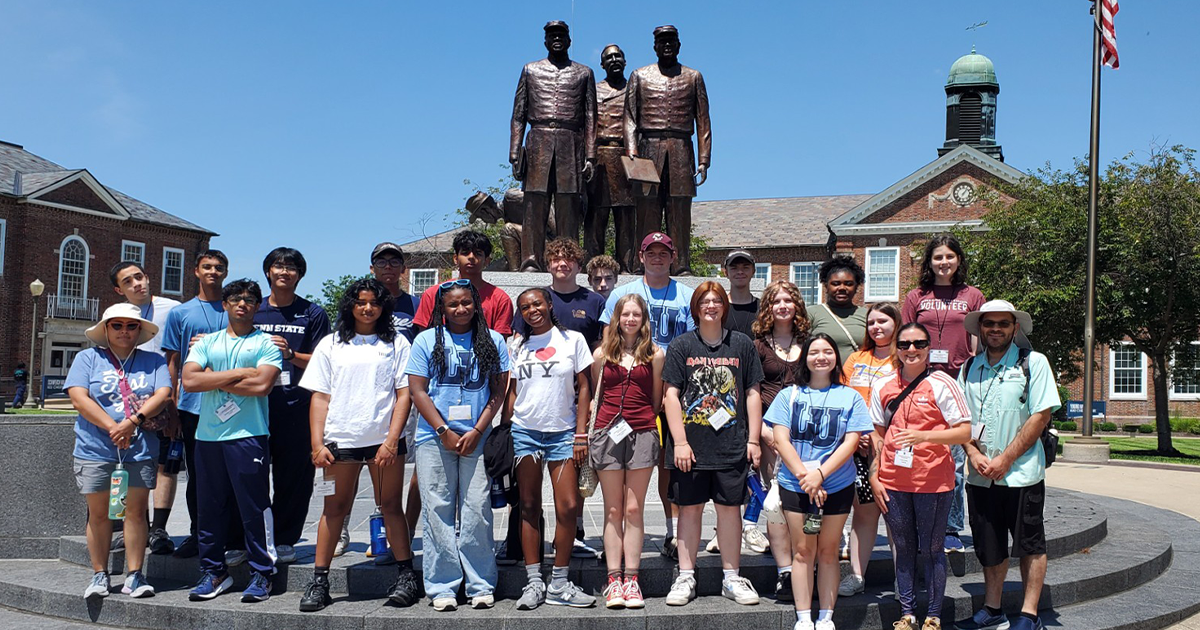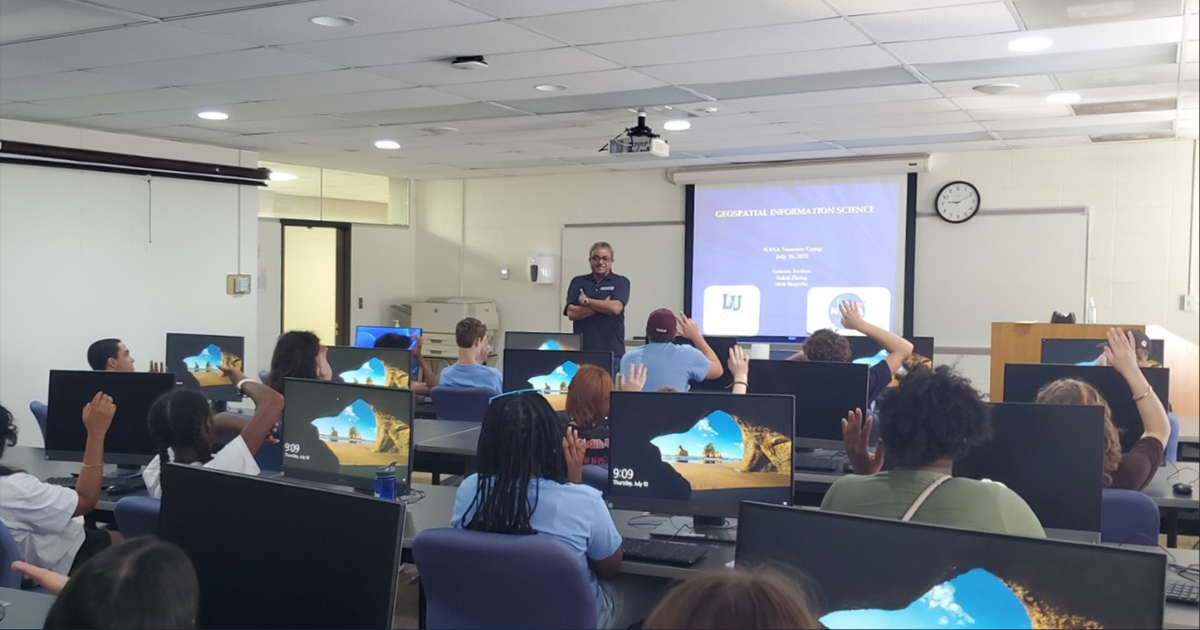Future Innovators: Lincoln University Hosts Third Annual NASA STEAM Summer Camp for High School Students
Office of Communications and Marketing
Young Hall
820 Chestnut Street
Jefferson City, MO 65101
 NASA STEAM Summer Camp students and their counselors stand in the Soldiers’ Memorial Plaza on Lincoln University campus.
NASA STEAM Summer Camp students and their counselors stand in the Soldiers’ Memorial Plaza on Lincoln University campus.
Lincoln University of Missouri (LU), in collaboration with the University of Missouri (MU), hosted the NASA STEAM Summer Camp in July, welcoming 20 high school students to its campus for a week of learning and fun.
Funded by NASA’s Minority University Research and Education Project Precollege Summer Institute, the program is the product of a partnership between NASA and 1890 land-grant institutions. The partnership seeks to promote science, technology, engineering, agriculture and mathematics (STEAM) education and career exploration.
This year’s camp, held July 6 to 12, marked Lincoln’s third year hosting the summer camp since the program began in 2023.
LU faculty worked in tandem with two MU faculty members and three school counselors to provide daily lectures, experiential learning and career development activities for camp attendees, expanding their STEAM awareness and education.
MU’s faculty hailed from the university’s statistics and agricultural engineering departments, leading activities on AI, machine learning, digital agriculture, sensors and robotics. LU faculty took the lead on geographic information systems (GIS), global positioning systems (GPS) and drone applications.
Professional development activities, led by counselors, tackled subjects like life in college, resume preparation, interview skills and job/college applications.
 NASA STEAM Summer Camp attendees learn about Geospatial Information Science in one of Lincoln University’s computer labs.
NASA STEAM Summer Camp attendees learn about Geospatial Information Science in one of Lincoln University’s computer labs.
Students spent the first day in orientation, getting to know each other and the faculty. Each following day focused on specific subjects:
- Day One: Digital agriculture, robotics and sensor technology
- Day Two: USDA career opportunities and LU research farm visit
- Day Three: Big data, AI and machine learning
- Day Four: Geospatial science (GIS/GPS) and drones
- Day Five: Visit to St. Louis Space and Science Centers
- Day Six: Presentations, awards and post-event surveys
Each day, campers attended learning sessions at the LU or MU campus, depending on the subject. They also received three meals, enjoyed recreation time and engaged in professional development activities.
Dr. John Yang, an LU professor who served as project director and helped organize the camp with his team, said students enjoyed learning through a variety of mediums, including hands-on opportunities, lectures, digital programs and field trips.
In addition to critical learning opportunities, Yang explained that the camp also supplied students with information on STEAM scholarships, internships and careers.
“Basically, the whole point of this summer camp is to create a pipeline to connect high school students with STEAM careers,” he said.
The camp was highly successful, Yang said, and students loved it from start to finish — especially when they received drones to take home.
The NASA STEAM Summer Camp operates under a five-year NASA grant. The camp will welcome students again in 2026 and 2027. Yang noted planning typically begins in January, and applications will open soon afterward.
For more information on the NASA STEAM Summer Camp at Lincoln, contact Dr. John Yang at YangJ@lincolnu.edu or (573) 861-5383.
